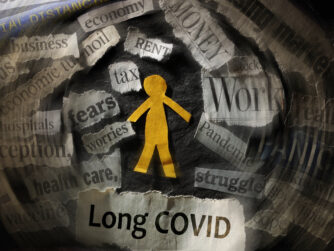Dr. Sandra Lane
In this podcast, Dr. Sandra Lane discusses how policy and environment promote disparities in health among people of color.
Interviewer: Bernadette Hoppe, JD, MPH, MA

In this podcast, Dr. Sandra Lane discusses how policy and environment promote disparities in health among people of color.
Interviewer: Bernadette Hoppe, JD, MPH, MA

“We're missing the ball. People with long COVID aren't even being assessed for long COVID. We're not finding out that we have it until...

Dr. Allan Barsky In this episode, Dr. Allan Barsky focuses on ethical issues in end-of-life decision making. In order to assist clients and...

"When we think about oral health, we really silo it rather than thinking of it as we have one body; we have one health. But oral health is...